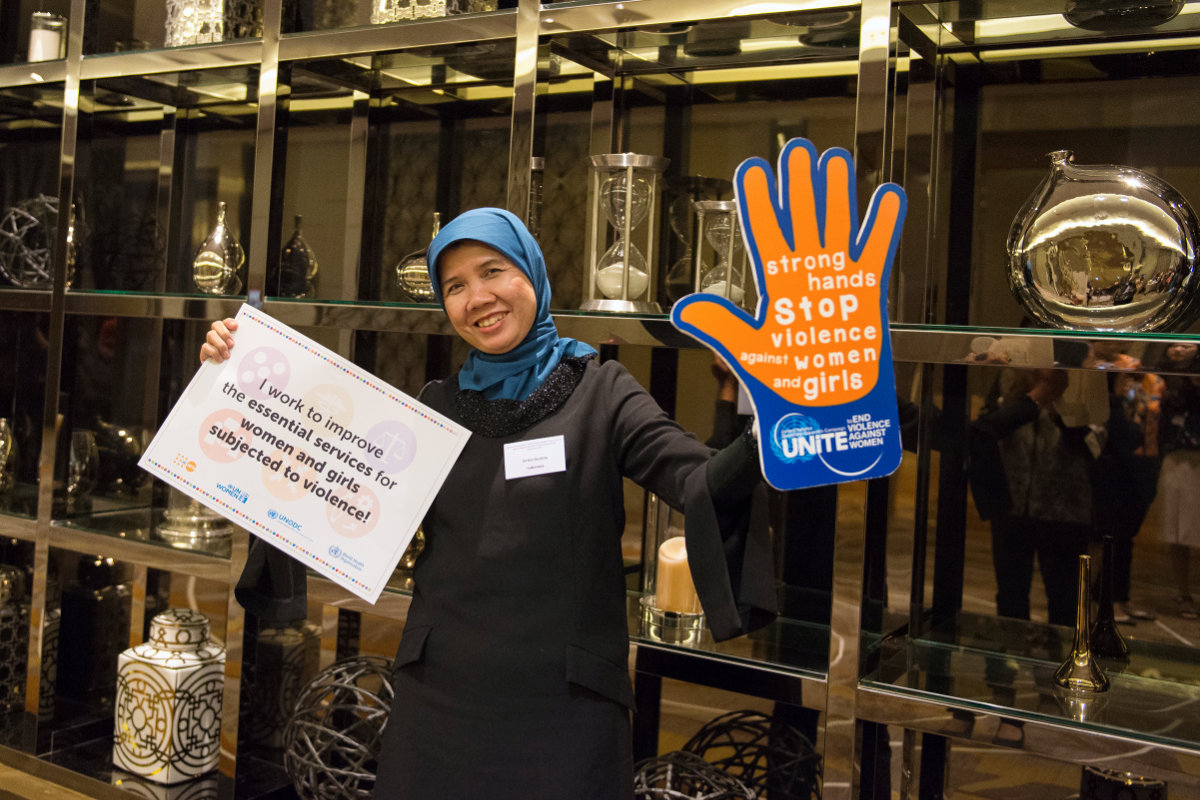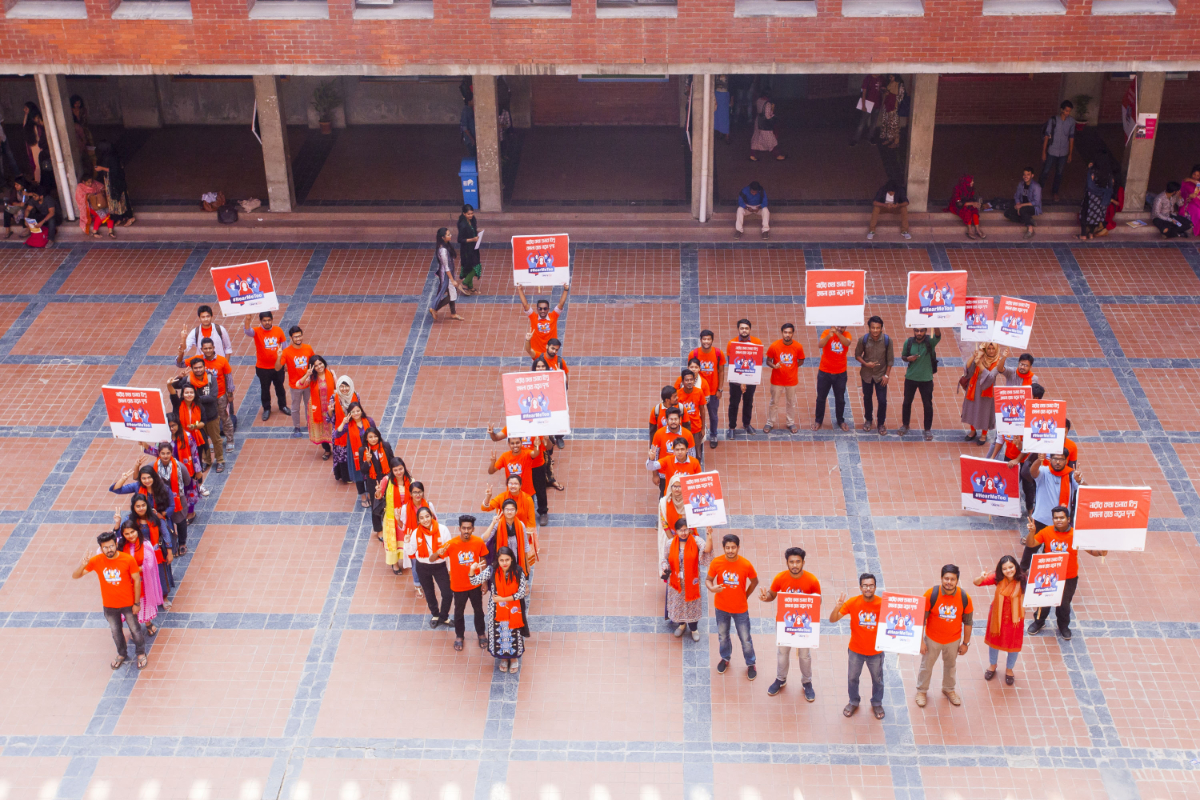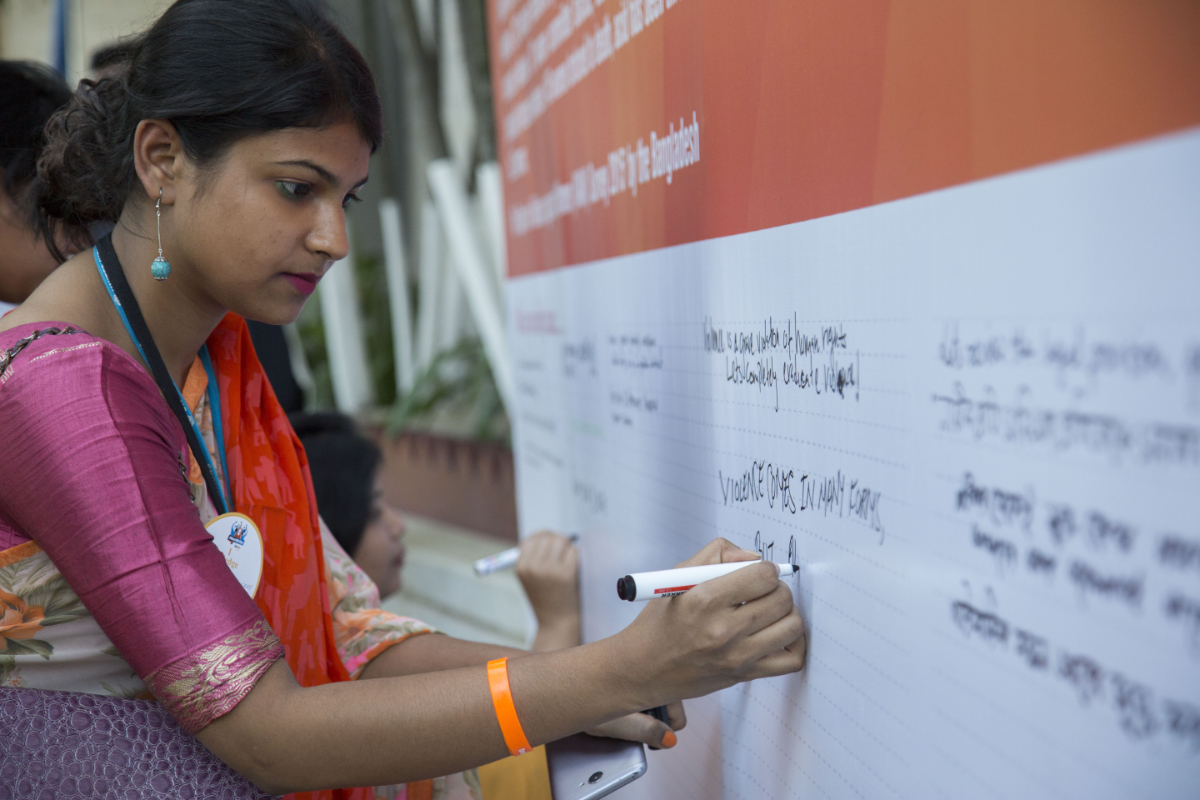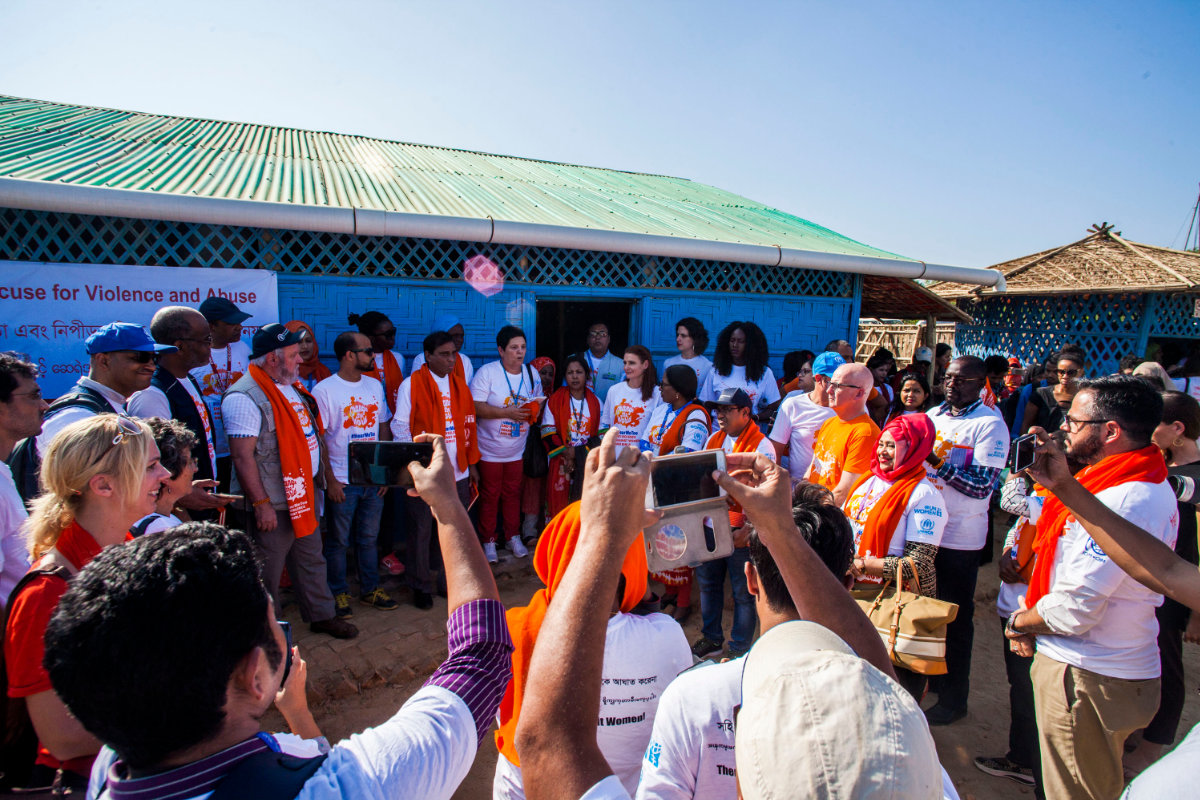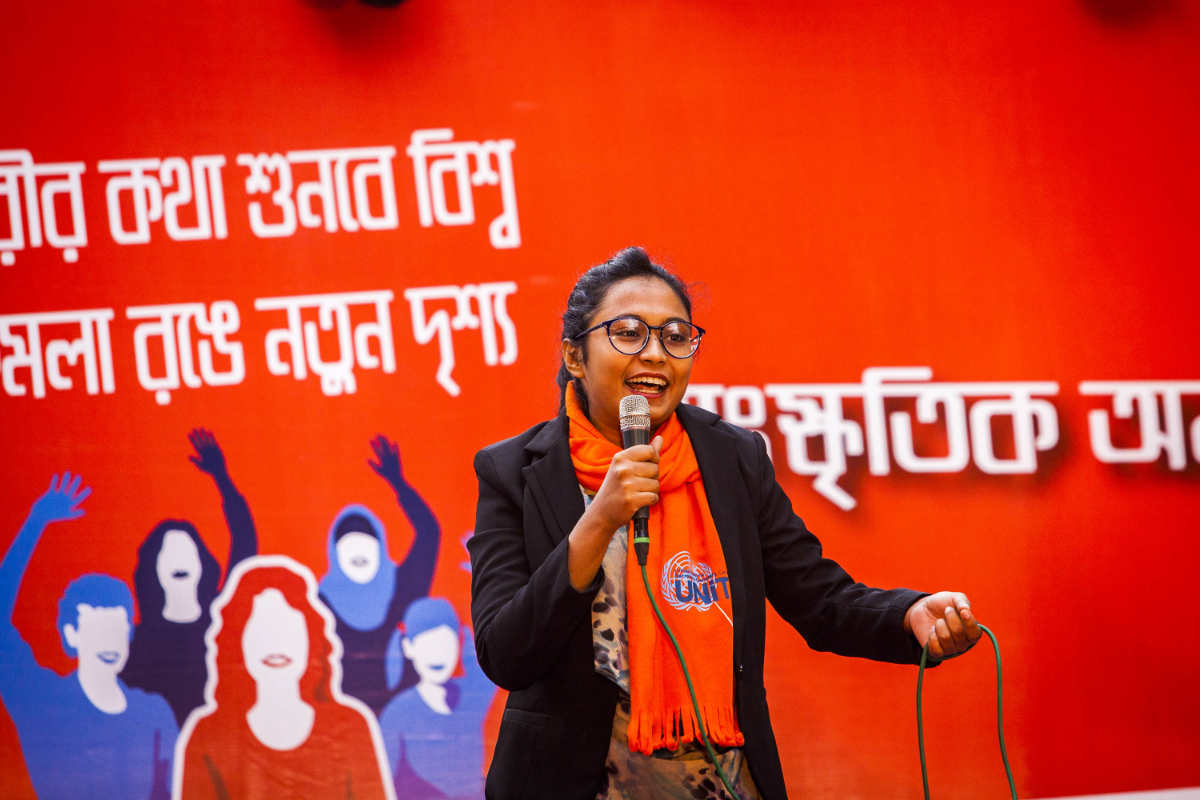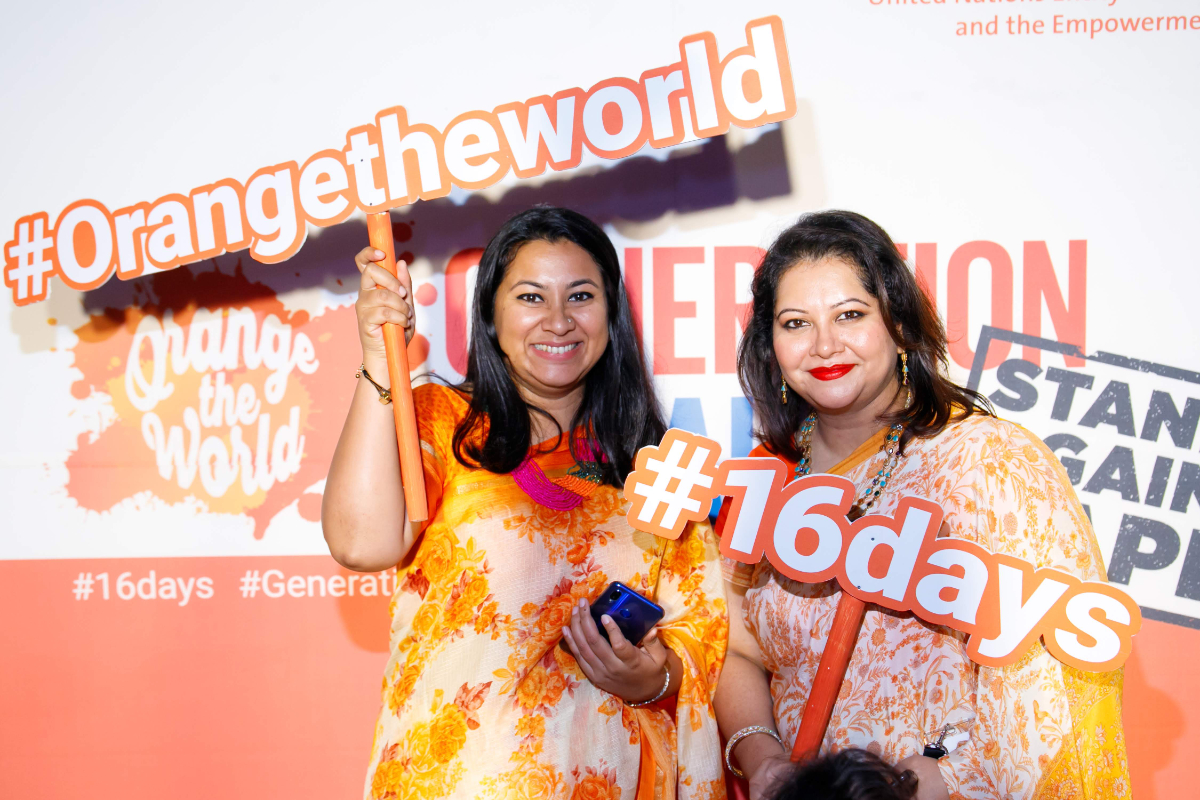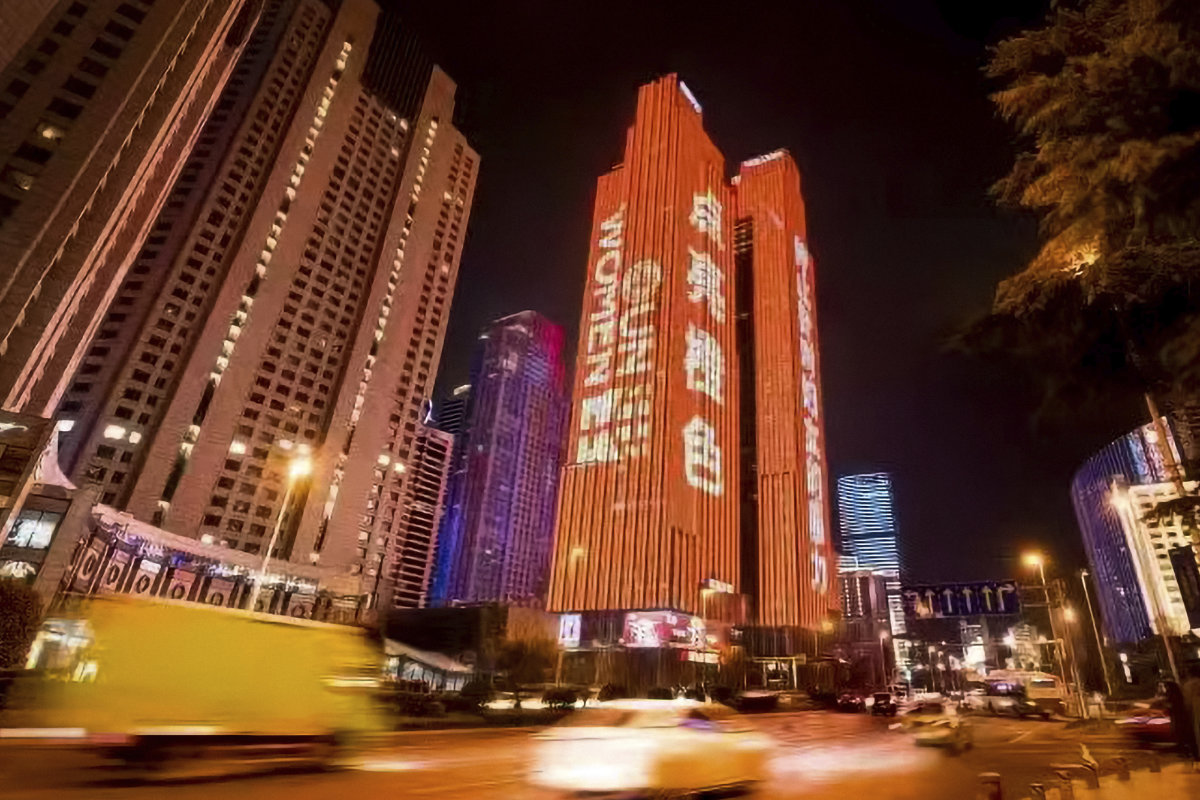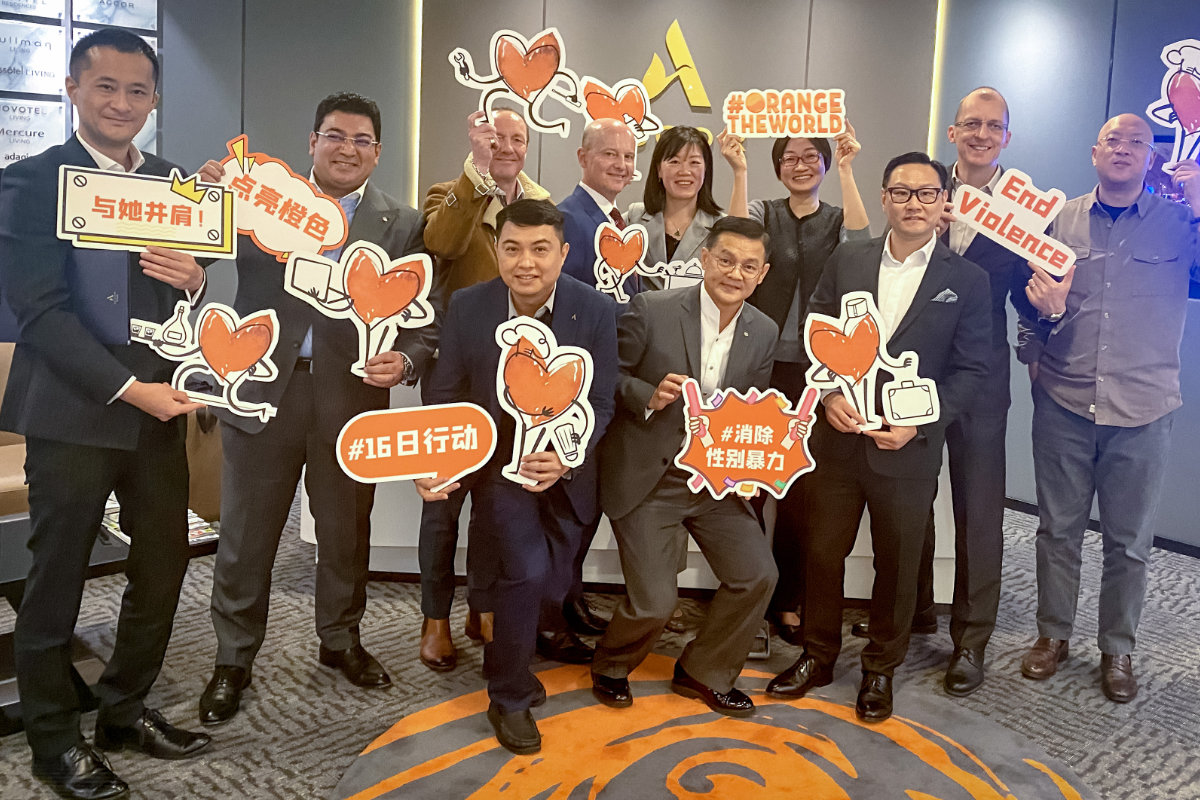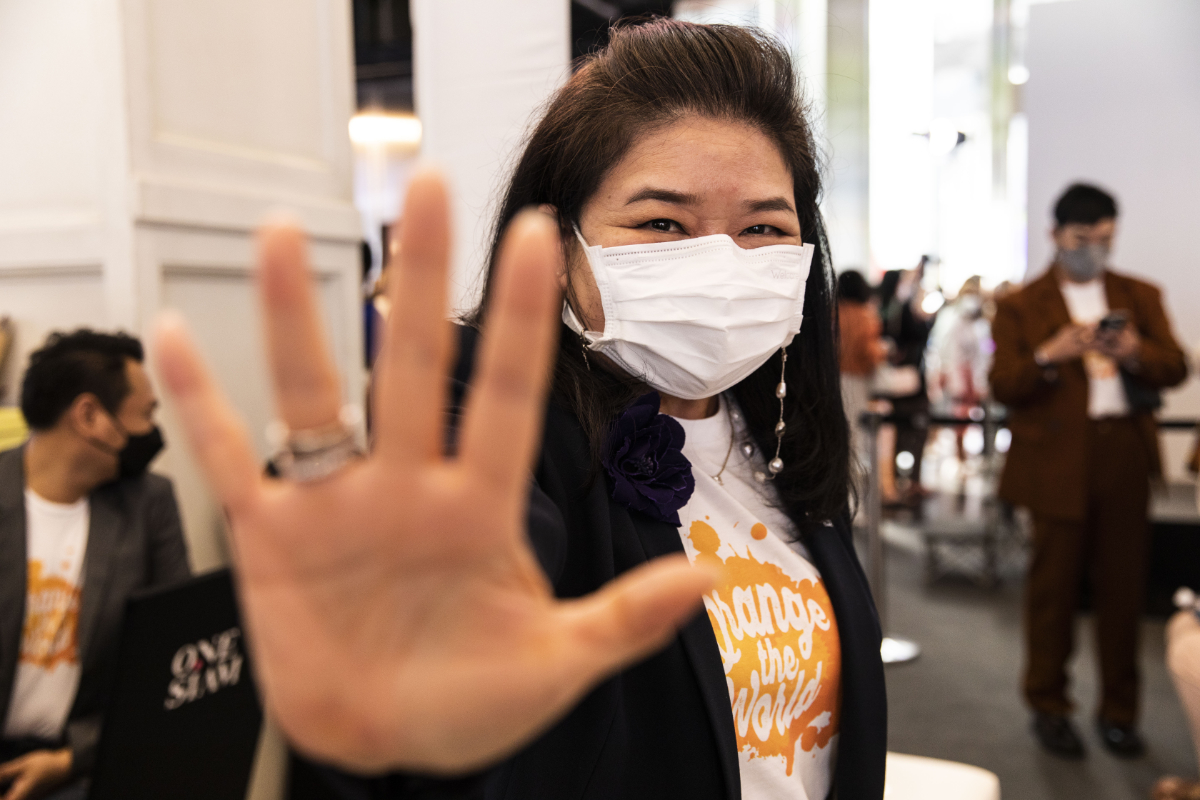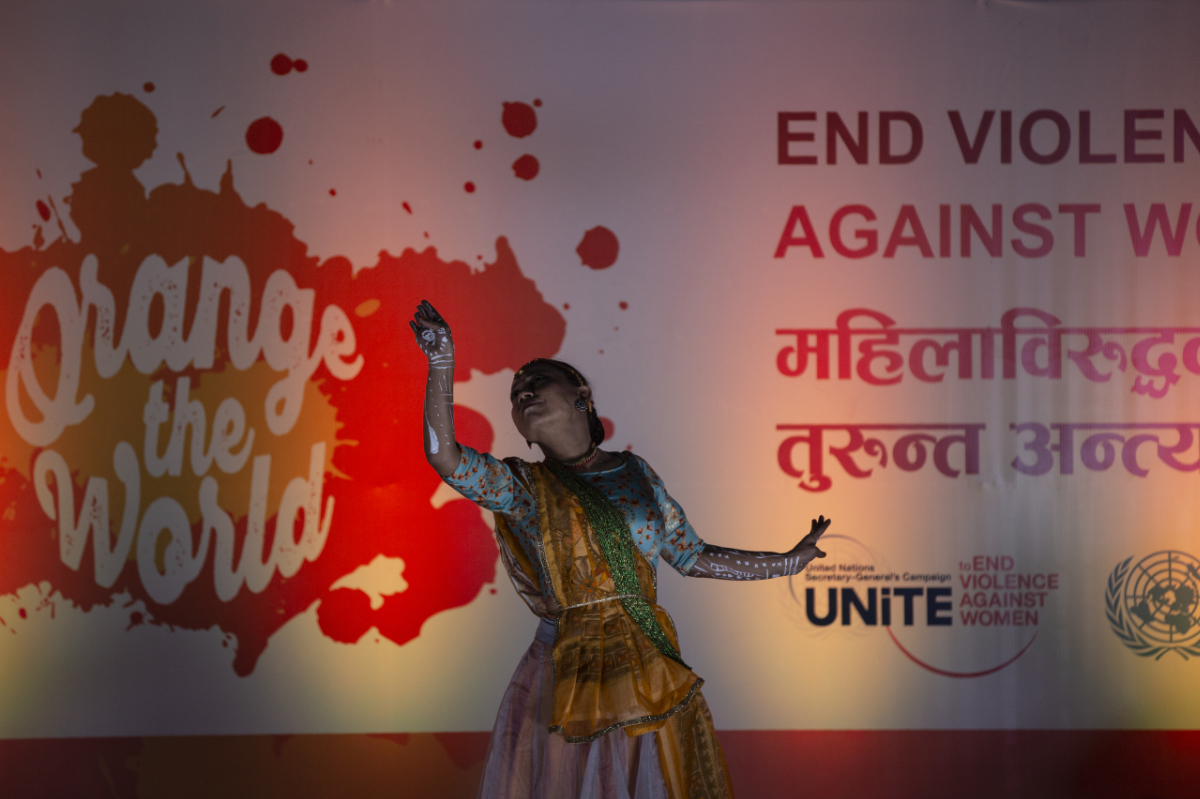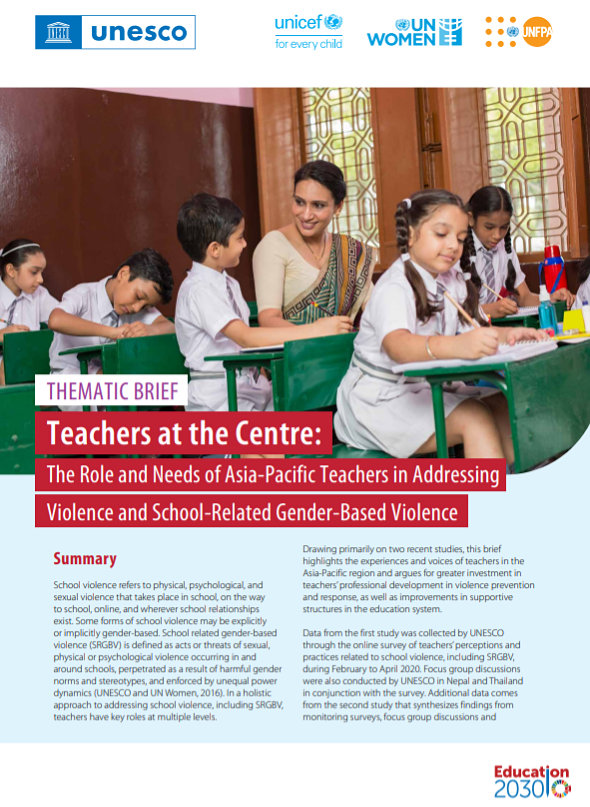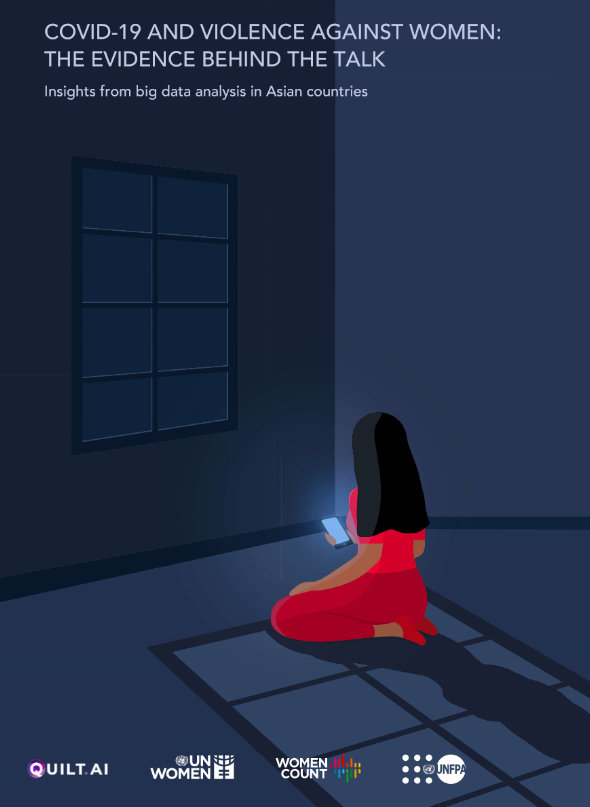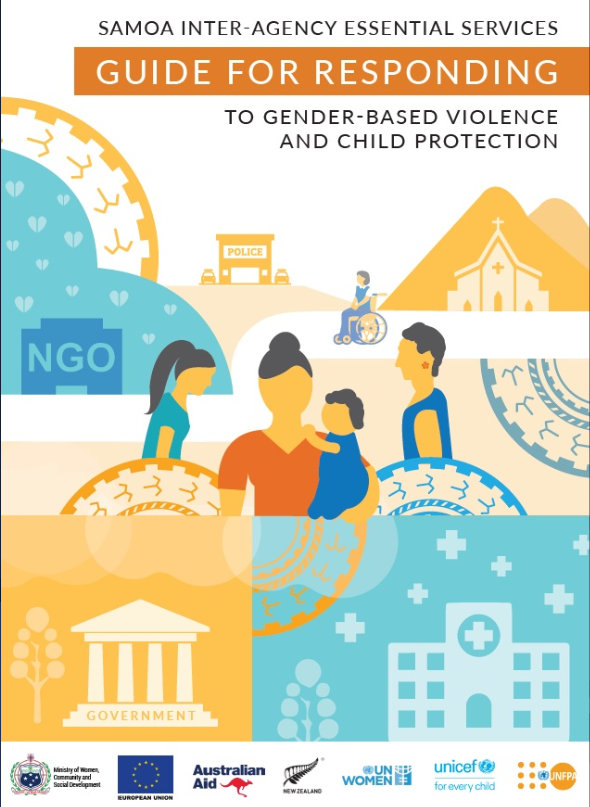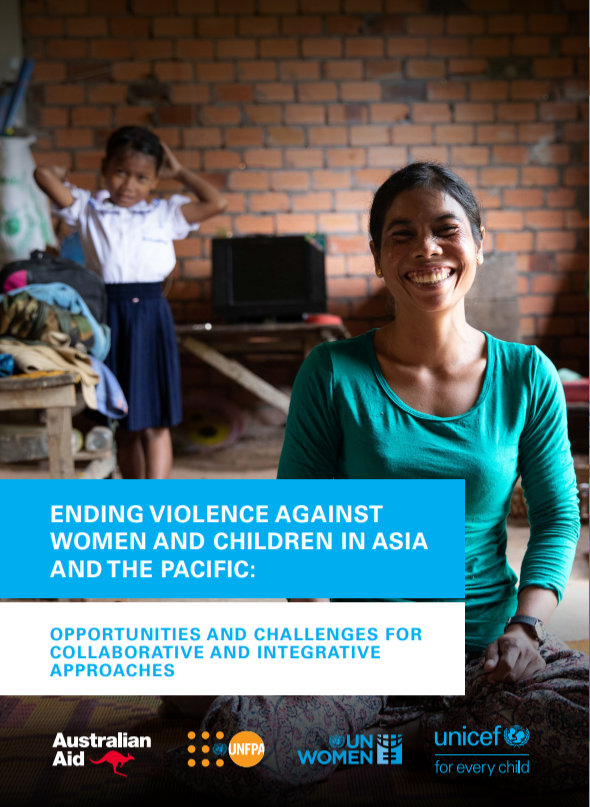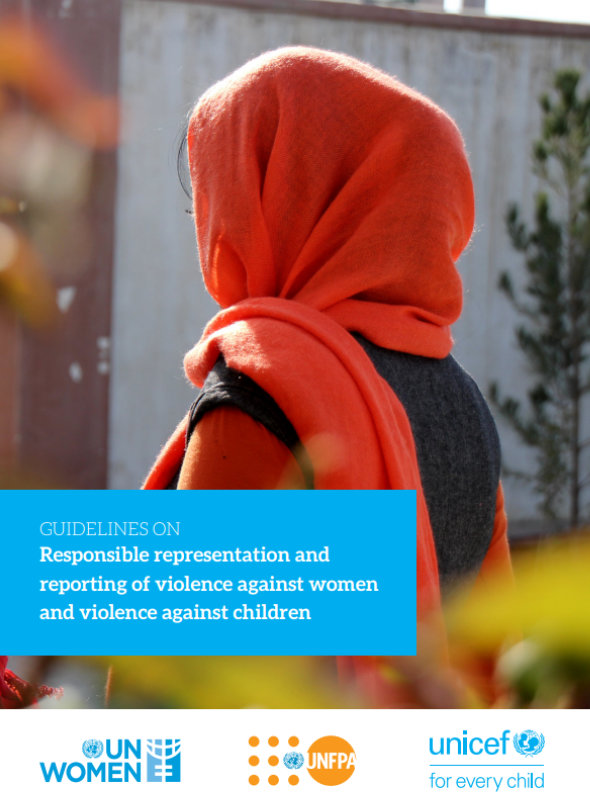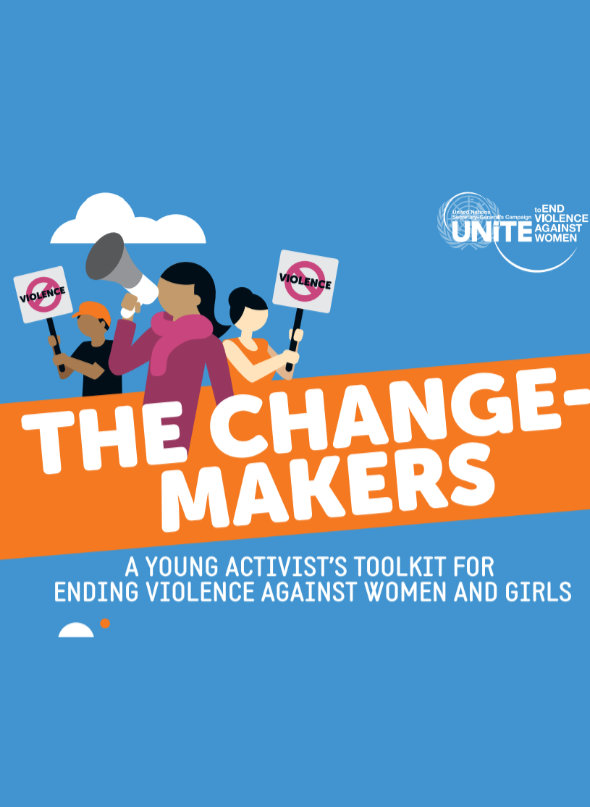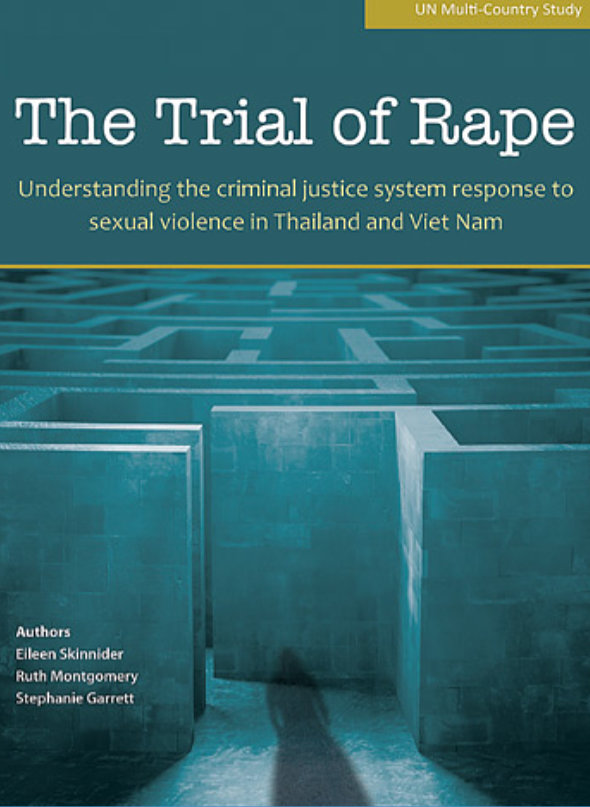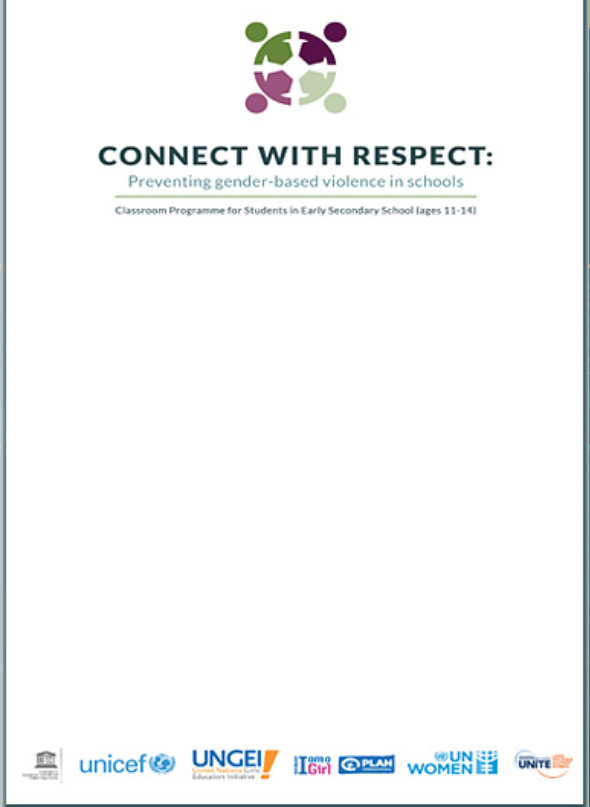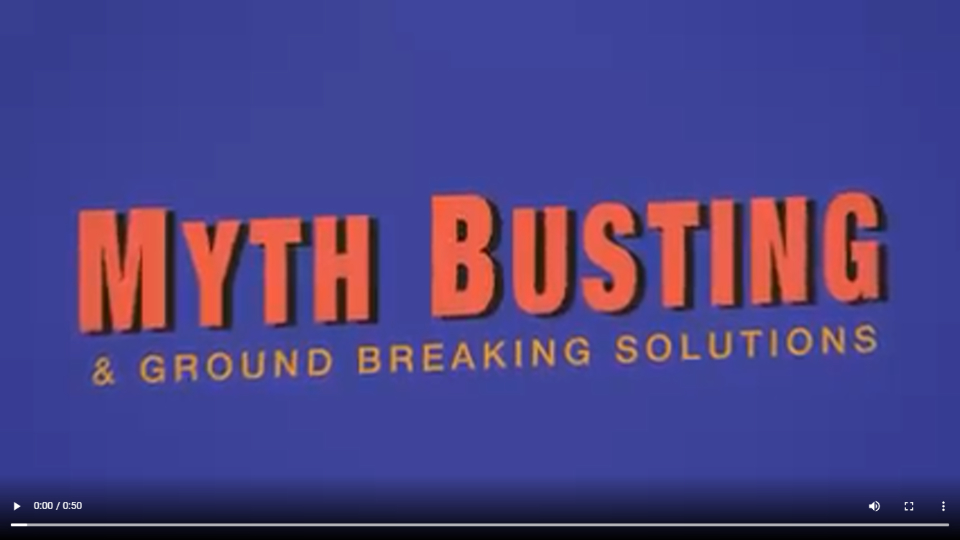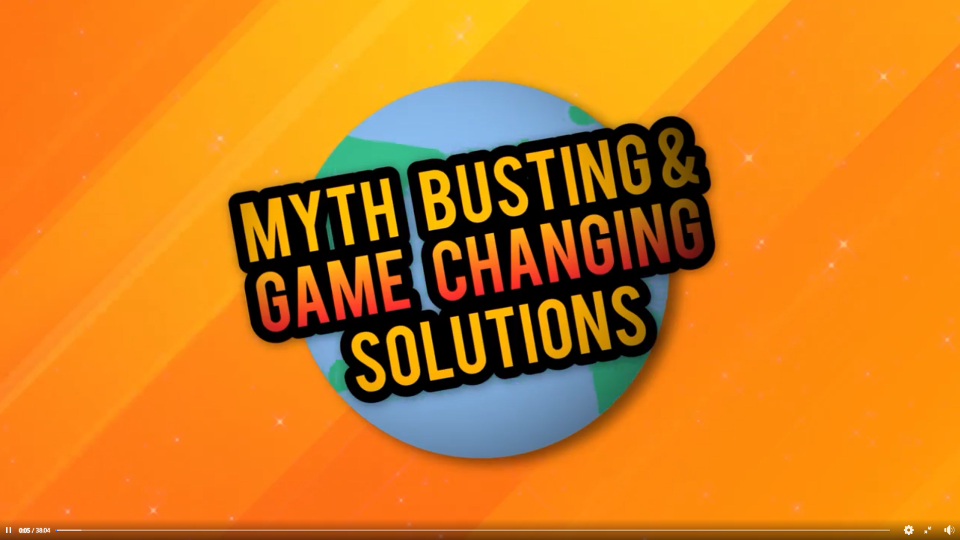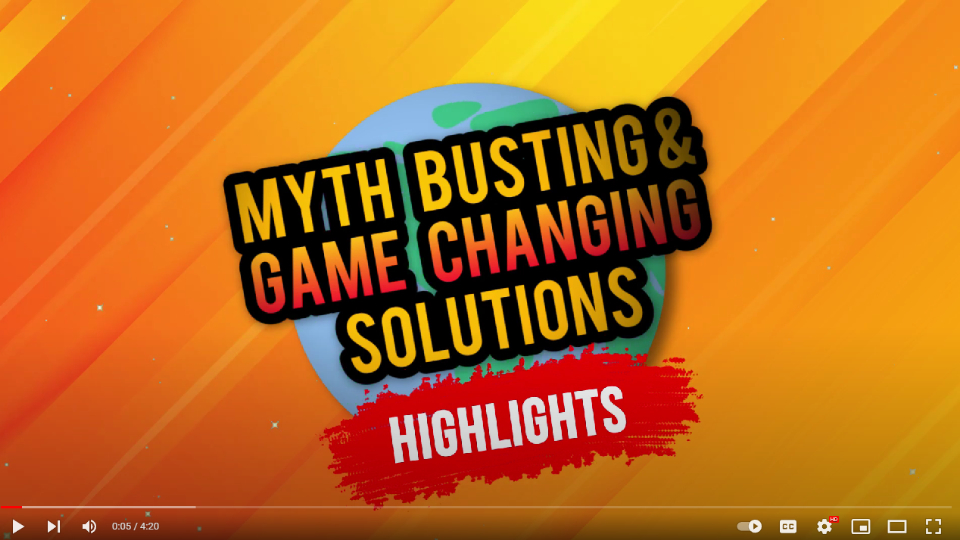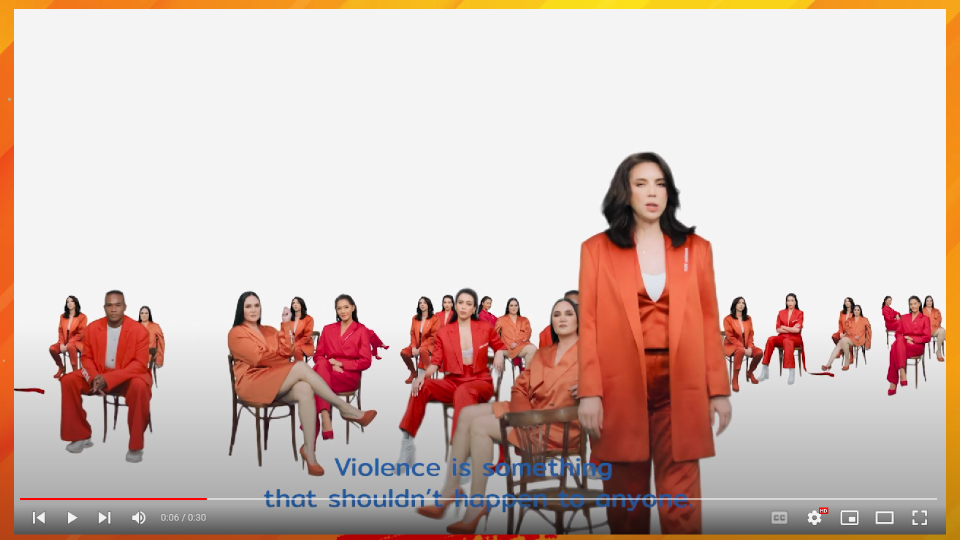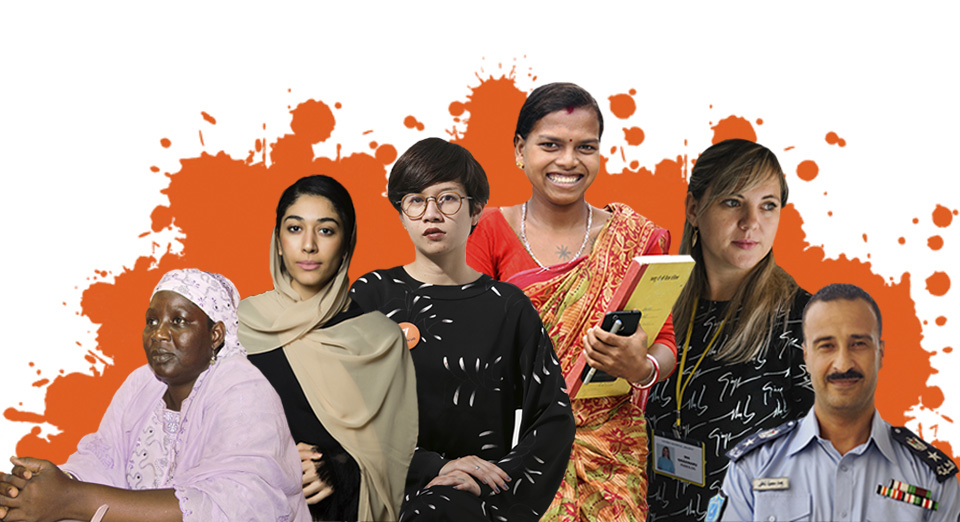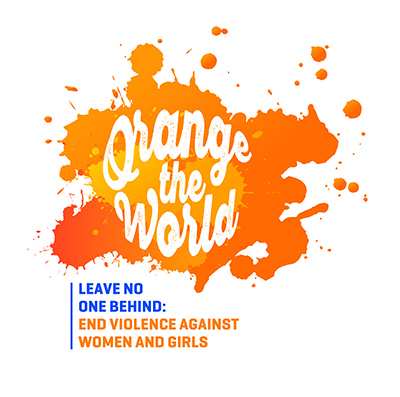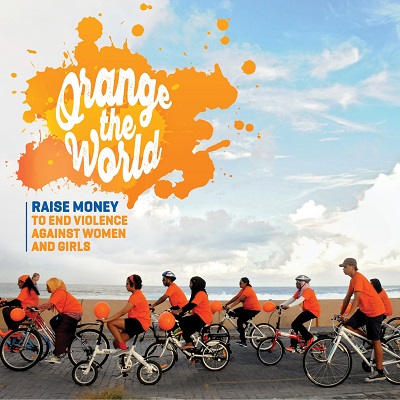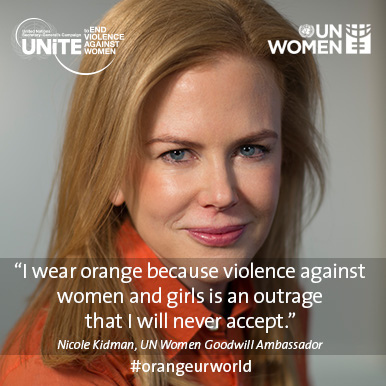
UNiTE Asia Pacific
Launched globally in 2008 and regionally in 2010, the UNiTE campaign aims to raise public awareness and increase political commitment to end all forms of violence against women and girls worldwide.
Since its launch, UNiTE has become a unifying and enduring force for positive change. UNiTE brings together a broad spectrum of allies from civil society, governments, women’s groups, men and boys, youth, the private sector, media, academics, and the UN System. Through creative and cutting-edge campaign initiatives UNiTE focuses on transforming social norms and mobilising all segments of the community to take action on ending violence against women.
Key achievements

#OrangeDay initiative
The UNiTE campaign has proclaimed the 25th of each month as “Orange Day”, a day to raise awareness and take action to end VAWG. As a bright and optimistic colour, orange represents a future free from violence against women and girls. Orange Day calls upon activists, governments, and UN partners to wear the colour orange, mobilise people, raise awareness, and take action to prevent and end VAWG every month- and gives opportunities to gather and call attention to issues specific to ending VAWG throughout the year.
16 Days of Activism against Gender-based Violence
From 25 November (International Day for the Elimination of Violence Against Women) to 10 December (Human Rights Day), the UNiTE campaign centres around the 16 Days of Activism against Gender-based Violence. Launched in 1991 by activists at the Women’s Global Leadership Institute, ’16 days’ is an international campaign to raise awareness and generate action to end violence against women and girls in communities worldwide.
UNiTE Asia Pacific 16 Days of Activism campaign actions have:
- provided a platform for women’s activists and survivors of VAWG to share their stories and create opportunities for dialogues with policymakers and the public,
- called for sustainable financing to end violence against women and girls and to close the gaps that are holding women and girls back,
- taken to the streets with events from marches, marathons and panel discussions to radio and television programmes, concerts, and film festivals,
- and continue to involve governments, celebrities, media, civil society organisations and the United Nations system on the ground and on social media to raise awareness and public engagement.
UNiTE Asia Pacific Resources
The Regional UNiTE Working Group, co-chaired by UN Women and UNFPA with membership across UN agencies, regularly produces joint research, guidance, and campaign actions at the regional level to support country-level action and progress. The following are a sample of resources produced through this joint UN cooperation.
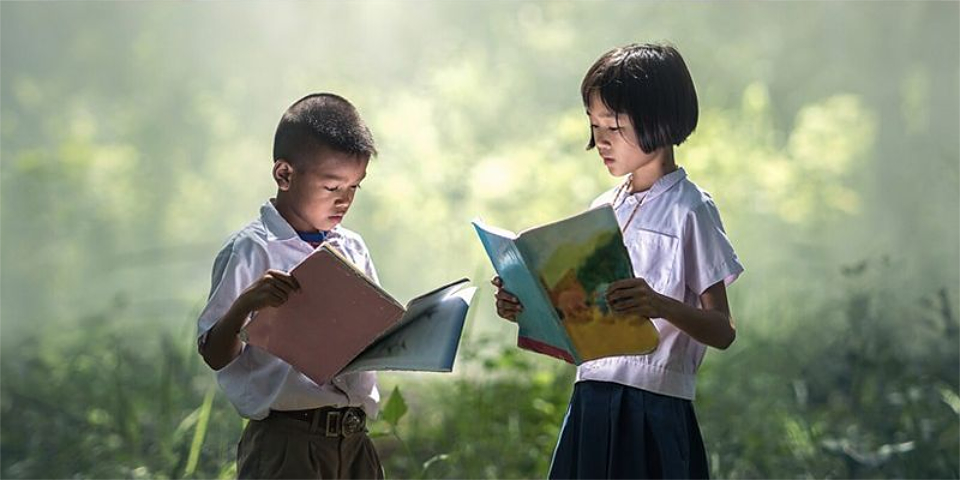
Type: Hybrid (both on-site and virtual)
Location: Bangkok, Thailand
The global COVID-19 pandemic created enormous challenges and barriers to education across the Asia Pacific region. This 3-day conference aimed at reflecting and agreeing on how to achieve education/learning recovery and, at the same time, how to strengthen and transform education systems to become more equitable, inclusive, responsive, relevant and resilient better deliver the SDG4 commitments. UN Women contributed to the conference at the joint-side event on school-related gender-based violence (SRGBV)..
Type: On-site workshop
Location: Viet Nam
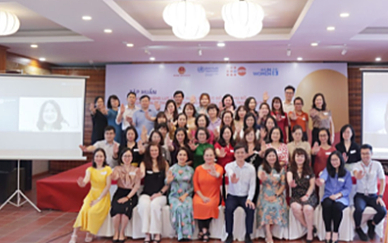
UN Women and partners continue accumulating evidence, both globally and from the region, confirming that violence against women and girls (VAWG) is preventable. UN Women Asia Pacific has been bringing this evidence to policymakers, services and CSOs working in this critical area through the RESPECT Implementation Framework.
This 3-day workshop aimed to support the understanding and use of RESPECT Implementation Package materials in Vietnam and to expand knowledge and skills on VAW prevention by exchanging information among prevention stakeholders. Key topics included awareness of VAW and VAW prevention, unpacking the RESPECT Framework, and applying RESPECT: developing and implementing prevention programmes focusing on the Viet Nam context.
Type: Conference (Online)
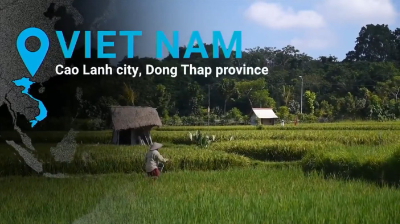
The social service workforce is key to promoting social justice, reducing discrimination, challenging and changing harmful behaviours and social norms, and preventing and responding to violence.
Members of the Association of Southeast Asian Nations (ASEAN) shared their experience and agreed on measures to promote the role of social work at the ASEAN Regional Conference on Strengthening Social Work, held virtually on April 16-28. UN Women contributed a presentation on strengthening case management and essential services, especially for vulnerable groups.
Visit: ASEAN Regional Conference on Strengthening Social Work
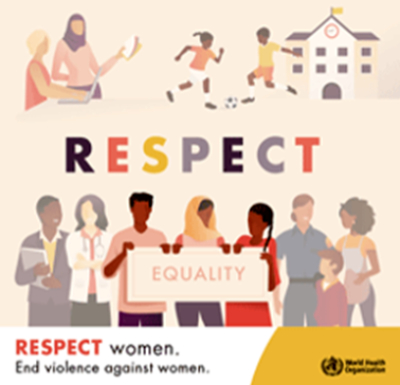
Type: Online Workshop Series (10 sessions)
The workshop series aimed at strengthening the capacity of government ministries, CSOs/NGOs, and women’s rights organisations to design and implement effective VAW prevention programming.
2021
Type: Online Launch
Internet searches related to violence against women and help-seeking rose significantly during COVID-19 enforced lockdowns in eight Asian countries, supporting the evidence that gender-based violence was rising during lockdowns.
This online launch event of the regional study, COVID-19 and Violence against Women: The Evidence behind the Talk, conducted jointly by UN Women, UNFPA and Quilt.ai, analysed big data in eight countries: Bangladesh, India, Indonesia, Malaysia, Nepal, Thailand, the Philippines, and Singapore. The analysis identified trends from online searches and social media posts on violence against women-related topics to assess whether related discourse has increased since the spread of COVID-19 and whether victims are finding the information needed.
Type: Online Workshop Series (12 sessions)
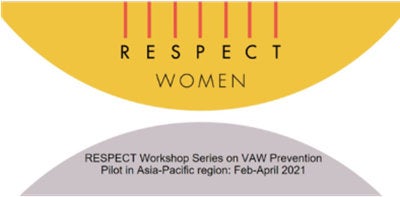
Prevention of violence against women and girls often takes a back seat to other efforts to address violence. But with the rollout of the RESPECT framework in India, Bangladesh and Nepal, more leaders are embracing the idea that prevention is possible and are focusing future work on prevention programming. The workshop series aimed at strengthening the capacity of government ministries, CSOs/NGOs, and women’s rights organisations to design and implement effective VAW prevention programming.
Read the story: Taking strides to prevent violence against women and girls in South Asia
Type: Launch (Online via Zoom)
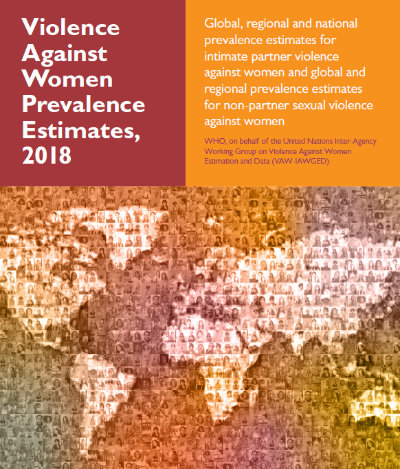
This report launch estimates the prevalence of Southeast Asia. Based on an analysis of available prevalence data from surveys and studies conducted between 2000 and 2018, obtained through a systematic and comprehensive review of all available data on the prevalence of violence against women. This report highlights the need for governments across the Asia Pacific region to reinforce the commitment to eliminate all forms of violence against women and girls.
View report: https://asiapacific.unwomen.org/en/news-and-events/in-focus/ending-violence-against-women/events-regional_asia
Type: Live webcast online
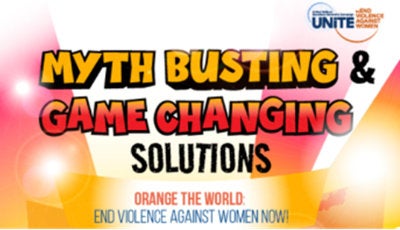
In support of the 2021 16 days campaign, the United Nations Secretary-General's UNiTE to End Violence against Women Campaign's Asia and the Pacific chapter launched the Myth Busting and Ground Breaking Solutions initiative. To not only celebrate achievements but to rethink the preconceived notions of why violence against women and girls continues to exist and what we can all do about it.
Broadcasted through the UNiTE social media channels and hosted by Cindy Sirinya Bishop, the half-hour show featured youth campaigners pitting their wits against each other to bust myths and misconceptions. The event also included intergenerational activists and their views about women's movements' past, present and future.
Visit: Myth Busting Highlights
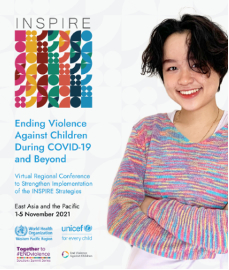
Type: Virtual Conference
Ending Violence against Women and Children in East Asia and Pacific study involves 4 country reports (Cambodia, Papua New Guinea, the Philippines, Viet Nam) and 1 regional report. INSPIRE Conference, a part of this study. The five-day conference aimed at placing ending violence against children high on the recovery agenda, while drawing on the framework of INSPIRE: seven strategies for ending violence against children developed by WHO, UNICEF and other partners to drive forward evidence-based action.
16 Days of Activism against Gender-based Violence
2021
The United Nations is marking the 16 Days of Activism against Gender-based Violence from 25 November to 10 December 2021, under the global theme set by the UN Secretary-General’s UNiTE campaign: “Orange the World: End Violence against Women Now!
Nearly 1 in 3 women have been abused in their lifetime. In times of crises, the numbers rise, as seen during the COVID-19 pandemic and recent humanitarian crises, conflicts and climate disasters. A new report from UN Women, based on data from 13 countries since the pandemic, shows that 2 in 3 women reported that they or a woman they know experienced some form of violence and are more likely to face food insecurity. Only 1 in 10 women said that victims would go to the police for help.
The Generation Equality Forum that concluded in Paris in July set the momentum for decisive actions and investment to advance gender equality. The UN Trust Fund to End Violence against Women, the only global grant-making mechanism dedicated to ending and preventing all forms of violence against women, has announced a special fundraising challenge, #Give25forUNTF25, marking 25 years of grant-making to support women’s organizations around the world.
Learn more about the campaign: https://asiapacific.unwomen.org/en/news-and-events/in-focus/ending-violence-against-women
2020
The UN System’s 16 Days of Activism against Gender-Based Violence activities, from 25 November to 10 December, will take place under our 2020 global theme: "Orange the World: Fund, Respond, Prevent, Collect!"
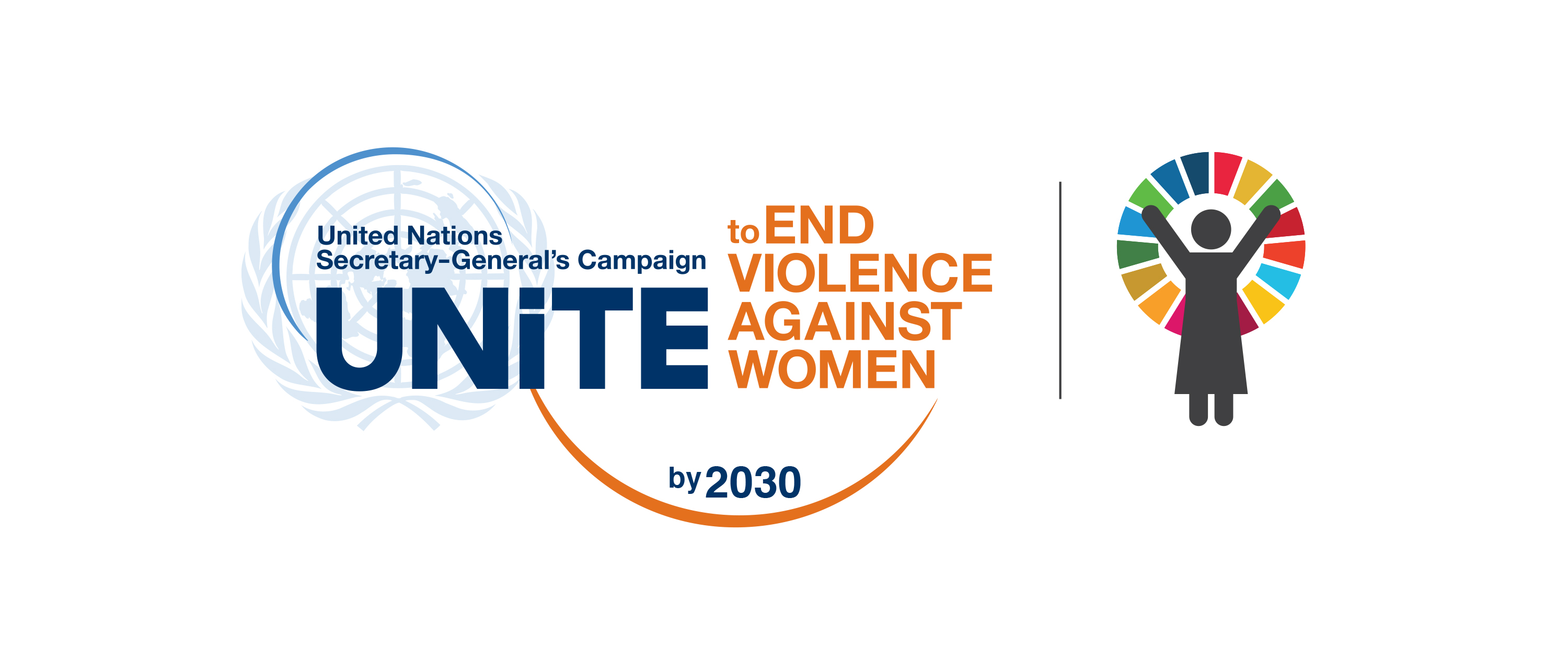
As the world retreated inside homes due to the lockdown measures introduced to curb the COVID-19 pandemic, reports showed an alarming increase in the already existing pandemic of violence against women.
“Accompanying the crisis has been a spike in domestic violence reporting, at exactly the time that services, including rule of law, health and shelters, are being diverted to address the pandemic,” stated the UN Secretary-General's report, “Shared Responsibility, Global Solidarity: Responding to the socio-economic impacts of COVID-19".
You can make a difference during the ongoing COVID-19 pandemic and protracted state of crisis it has generated across the world. You can support women and girl survivors of violence to stay safe and free of violence. Take action during this year’s 16 Days of Activism to End Gender-Based Violence. For more information about “Orange the World: Fund, Respond, Prevent, Collect!” and action ideas, see this year’s concept note.
The 16 Days of Activism against Gender-Based Violence is an annual international campaign that kicks off on 25 November, the International Day for the Elimination of Violence against Women, and runs until 10 December, Human Rights Day. It was started by activists at the inaugural Women’s Global Leadership Institute in 1991 and continues to be coordinated each year by the Center for Women’s Global Leadership. It is used as an organizing strategy by individuals and organizations around the world to call for the prevention and elimination of violence against women and girls.
In support of this civil society initiative, under the leadership of the UN Secretary-General, António Guterres, the United Nations Secretary-General’s UNiTE by 2030 to End Violence against Women campaign (UNiTE campaign) calls for global actions to increase awareness, galvanize advocacy efforts, and share knowledge and innovations.
2019
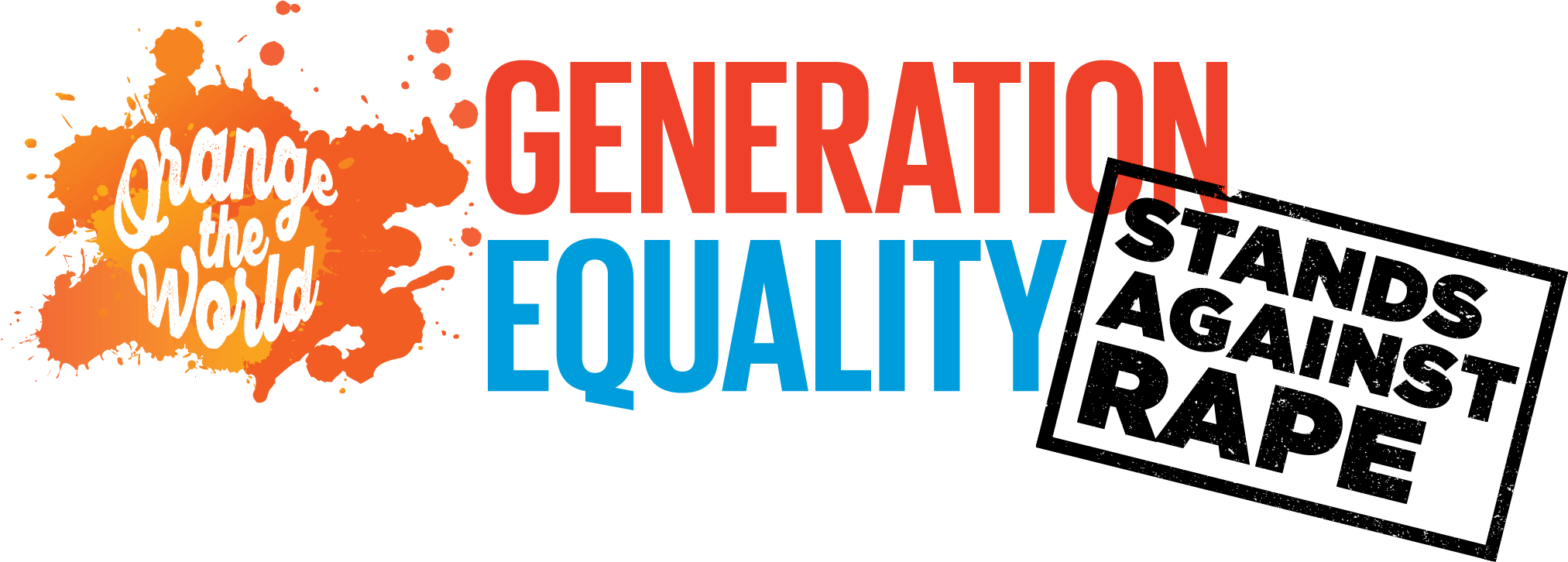
In 2019, the UNiTE campaign will mark the 16 Days of Activism against Gender-Based Violence, from 25 November to 10 December, under the theme, “Orange the World: Generation Equality Stands against Rape!”
While the names, times and contexts may differ, women and girls universally experience rape, sexual violence, and abuse, in times of peace or war.
Rape is rooted in a complex set of patriarchal beliefs, power, and control that continue to create a social environment in which sexual violence is pervasive and normalized. Exact numbers of rape and sexual assaults are notoriously difficult to confirm due to frequent latitude and impunity for perpetrators, stigma towards survivors, and their subsequent silence.
In recent years, the voices of survivors and activists, through campaigns such as #MeToo, #TimesUp, #Niunamenos, #NotOneMore, #BalanceTonPorc, and others, have put the spotlight on the issue of sexual violence and have reached a crescendo that cannot be silenced or ignored anymore.
That is why, under the umbrella of UN Women’s Generation Equality campaign that marks the 25th anniversary of the Beijing Declaration and Platform for Action, the UNiTE Campaign is calling on people from all walks of life to learn more and take a stand against the pervasive rape culture that surrounds us.
Join us! Share your photos, messages and videos showing how you are participating in the campaign on Facebook, Instagram, and Twitter using #OrangeTheWorld and #GenerationEquality. You can also join the conversation on social media by sharing our campaign materials that you can download here. For more information about “Orange the World: Generation Equality Stands against Rape” and action ideas, see this year’s concept note.
2018
From 25 November, the International Day for the Elimination of Violence against Women, to 10 December, Human Rights Day, the 16 Days of Activism against Gender-Based Violence Campaign is a time to galvanize action to end violence against women and girls around the world. The international campaign originated from the first Women's Global Leadership Institute coordinated by the Center for Women's Global Leadership in 1991.
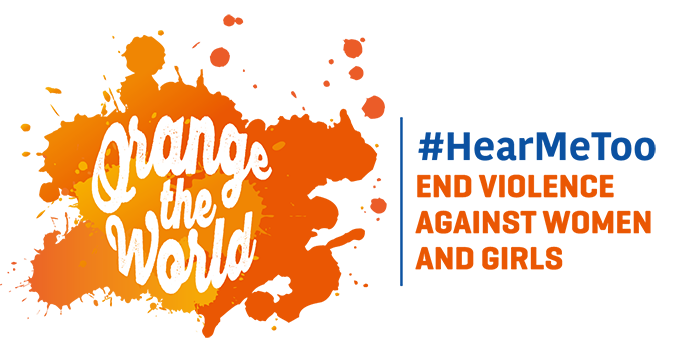
For far too long, impunity, silence and stigma have allowed violence against women to escalate to pandemic proportions—one in three women worldwide experience gender-based violence.
The time for change is here and now.
In recent years, the voices of survivors and activists, through campaigns such as #MeToo, #TimesUp, #Niunamenos, #NotOneMore, #BalanceTonPorc and others, have reached a crescendo that cannot be silenced any more. Advocates understand that while the names and contexts may differ across geographic locations, women and girls everywhere are experiencing extensive abuse and their stories need to be brought to light.
This is why the UNiTE Campaign’s global advocacy theme this year is: Orange the World: #HearMeToo
In Focus: Orange the World, #HearMeToo»
Under the theme Orange the World: #HearMeToo, the UNiTE partners are encouraged to host events with local, national, regional and global women’s movements, survivor advocates and women human rights defenders and create opportunities for dialogue between activists, policy-makers and the public. As in previous years, the colour orange will be a key theme unifying all activities, with buildings and landmarks lit and decorated in orange to bring global attention to the initiative.
Join us! Share your photos, messages and videos showing how you are participating in the campaign at facebook.com/SayNO.UNiTE and twitter.com/SayNO_UNiTE using #orangetheworld and #HearMeToo. For more information about Orange the World: #HearMeToo, see this year’s Concept Note.
Save the date for the UN official commemoration of the International Day for the Elimination of Violence against Women.
2017
From 25 November, the International Day for the Elimination of Violence against Women, to 10 December, Human Rights Day, the 16 Days of Activism against Gender-Based Violence Campaign is a time to galvanize action to end violence against women and girls around the world. The international campaign originated from the first Women's Global Leadership Institute coordinated by the Center for Women's Global Leadership in 1991.
In 2017, the UNiTE Campaign marked the 16 Days of Activism against Gender-Based Violence under the overarching theme, “Leave No One Behind: End Violence against Women and Girls”— reflecting the core principle of the transformative 2030 Agenda for Sustainable Development.
“Leave No One Behind: End Violence against Women and Girls” reinforces the UNiTE Campaign’s commitment to a world free from violence for all women and girls around the world, while reaching the most underserved and marginalized, including refugees, migrants, minorities, indigenous peoples, and populations affected by conflict and natural disasters, amongst others, first.
As in previous years, the colour orange was a key theme unifying all activities, and buildings and landmarks will be lit and decorated in orange to bring global attention to the issue of violence against women and girls.
See what happened »
For more information see the action plan.
2016
In 2016, the UNiTE campaign strongly emphasized the need for sustainable financing for efforts to end violence against women and girls towards the fulfilment of the 2030 Agenda for Sustainable Development.
One of the major challenges to efforts to prevent and end violence against women and girls worldwide is the substantial funding shortfall. As a result, resources for initiatives to prevent and end violence against women and girls are severely lacking. Frameworks such as the Sustainable Development Goals, which includes a specific target on ending violence against women and girls, offer huge promise, but must be adequately funded in order to bring real and significant changes in the lives of women and girls.
To bring this issue to the fore, the UN Secretary-General’s campaign UNiTE to End Violence against Women’s call for the 16 Days of Activism against Gender-Based Violence in 2016 was ‘Orange the World: Raise Money to End Violence against Women and Girls’. The initiative provided a moment to bring the issue of sustainable financing for initiatives to prevent and end violence against women to global prominence and also presents the opportunity for resource mobilization for the issue.
See what happened »
For more information see the action plan.
2015
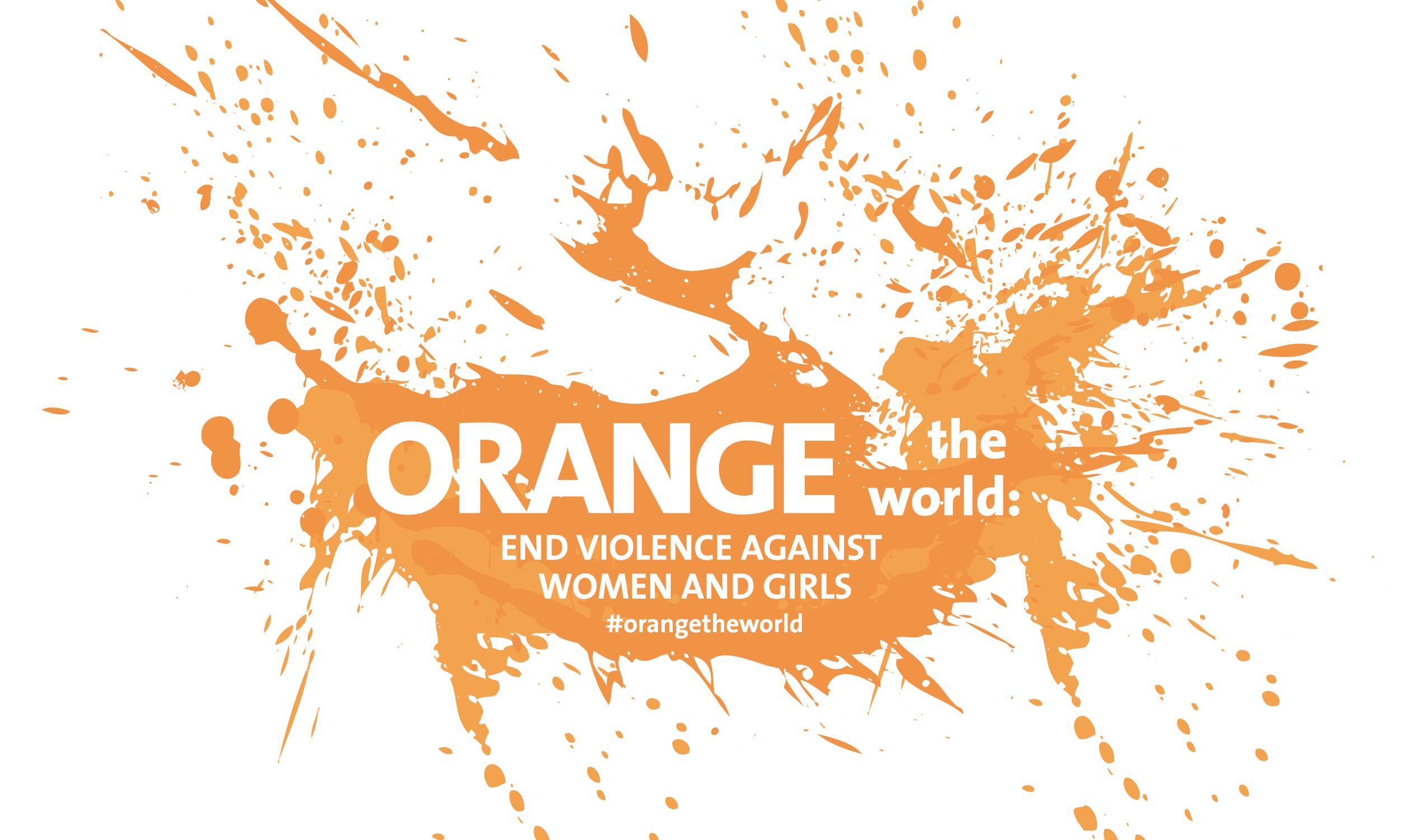
The year 2015 marked the 20-year anniversary of the Beijing Declaration and Platform for Action, the most progressive road map to gender equality. World leaders met in March at the United Nations 59th Commission on the Status of Women and in September at the 70th General Assembly to take stock of the progress made and commit to take action to close the gaps that are holding women and girls back. This year a new Sustainable Development agenda, which for the first time includes specific targets and indicators on ending violence against women, also replaced the Millennium Development Goals.
In 2015, the United Nations Secretary-General’s Campaign UNiTE to End Violence against Women invited you to “Orange the world: End violence against women and girls.”
See what happened »
For more information see poster and toolkit.
2014
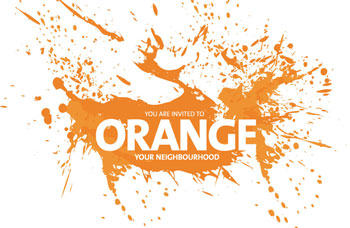
The 2014 theme was “Orange YOUR Neighbourhood.” Participants around the globe took the UNiTE campaign to local streets, shops and businesses, organizing “Orange Events” in their own neighbourhoods, reaching out to your neighbours, local stores, food-sellers on the corner of your street, gas stations, local cinemas, barbers, schools, libraries and post offices. Orange lights were projected and orange flags hung on local landmarks and local ‘orange marches’ were organized on 25 November to raise awareness about violence against women and discuss solutions that would work for specific communities.
See what happened »
For more information about “Orange YOUR Neighbourhood, 2014” see flyer and toolkit.
2013
The overall theme for Orange Day in 2013 was ‘Safe Spaces for Women and Girls’, highlighting the recommendations of the agreed conclusions of the 57th session of the UN Commission on the Status of Women (CSW57) which took place in March.
From 25 November, the International Day for the Elimination of Violence against Women, to 10 December 2013, Human Rights Day, UNiTE called for a global action to “Orange Your World in 16 Days.”
As part of the 16 Days of Activism against Gender Violence, organizations and activists organized local and national 'orange' events. From marches, marathons and panel discussions to radio and television programmes, concerts and film festivals, Orange Your World involved governments, celebrities, media, civil society organizations and the United Nations system on the ground and on social media to raise awareness and public engagement.
Watch this video showcasing actions around the world to Orange the World in 16 Days:
